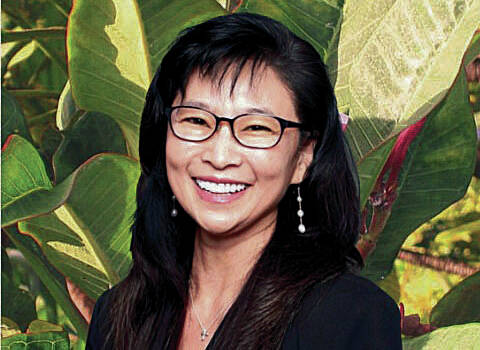As Hawaii stands on the verge of educational reform, the implementation of universal prekindergarten (pre-K) emerges not only as a practical solution to provide our children quality education and a promising future, but also as a critical step toward achieving social justice and equity in our society.
In Hawaii, approximately 8,000 3- and 4-year-olds lack adequate access to pre-K education. Enacted into state law in 2020, Act 46 set the ambitious goal of ensuring early learning access to all 3- and 4-year-olds statewide by 2032. Thanks to the dedicated efforts of Lt. Gov. Sylvia Luke and others, progress is being made in advancing this agenda.
Chaminade University of Honolulu stands behind the recent push for providing noncompulsory quality preschool education in Hawaii because it is morally and practically imperative. Universal pre-K tackles systemic inequities by granting all children, regardless of socioeconomic background, access to high-quality early childhood education.
By guaranteeing that every child receives a pre-K education irrespective of their family’s financial circumstances, we can start to level the playing field and foster a more equitable society. This is particularly critical in Hawaii, where educational disparities have persisted for a long time.
Moreover, universal pre-K plays a vital role in breaking the cycle of poverty and inequality. Children who attend high-quality pre-K programs are more likely to excel academically, earn higher incomes, and lead healthier lives as adults. By investing in early childhood education, we invest in the future prosperity and well-being of our state.
Providing quality early learning experiences for our keiki is instrumental in shaping their future success in both school and life. Research shows that high-quality early childhood education has enduring positive effects on low-income children including improved academic performance, higher graduation rates, reduced juvenile crime, decreased reliance on special education services, and lower rates of adolescent pregnancy.
Additionally, universal pre-K promotes social justice by nurturing inclusion and diversity from a young age. In pre-K classrooms, children learn to appreciate differences, respect others’ perspectives, and collaborate effectively — a foundation for building a more harmonious and equitable society. By embracing diversity in the classroom, we prepare children to navigate an increasingly interconnected world with empathy and understanding.
Chaminade University believes one of the key components to providing quality early childhood education starts with quality teachers. Along with a required bachelor’s degree, preschool teachers need sustainable salaries because of our higher cost of living here, and continued access to ongoing professional development to grow as educators. Our Early Childhood and Montessori Programs, designed to train and support promising early education teachers, helps address the demand for qualified educators.
The estimated annual cost to implement a public prekindergarten system is about $100 million if solely funded through the state, but this expense drops significantly with the involvement of public-private partnerships. The state Legislature explored measures to encourage such partnerships to expedite the development of pre-K programs statewide. The recently passed Senate Bill 3087, for instance, proposes creating additional cost-effective classroom spaces through public-private partnerships, utilizing vacant public spaces beyond state Department of Education school campuses.
Implementing universal pre-K in Hawaii is about providing access to early childhood education and advancing social justice, equity, and peace. Visionary educators like Dr. Maria Montessori believed that education isn’t just about imparting knowledge but about equipping children with the tools to realize their potential and contribute meaningfully to society.
Montessori’s unwavering commitment to fostering peace and social justice through education aligns with the goals of universal pre-K in Hawaii.
Inspired by the educators who paved the way, let us seize this opportunity to invest in our young children and cultivate a brighter future for Hawaii.
Elizabeth Park is director of Chaminade University’s Early Childhood and Montessori Programs, and an associate professor at the university’s School of Education and Behavioral Sciences.

